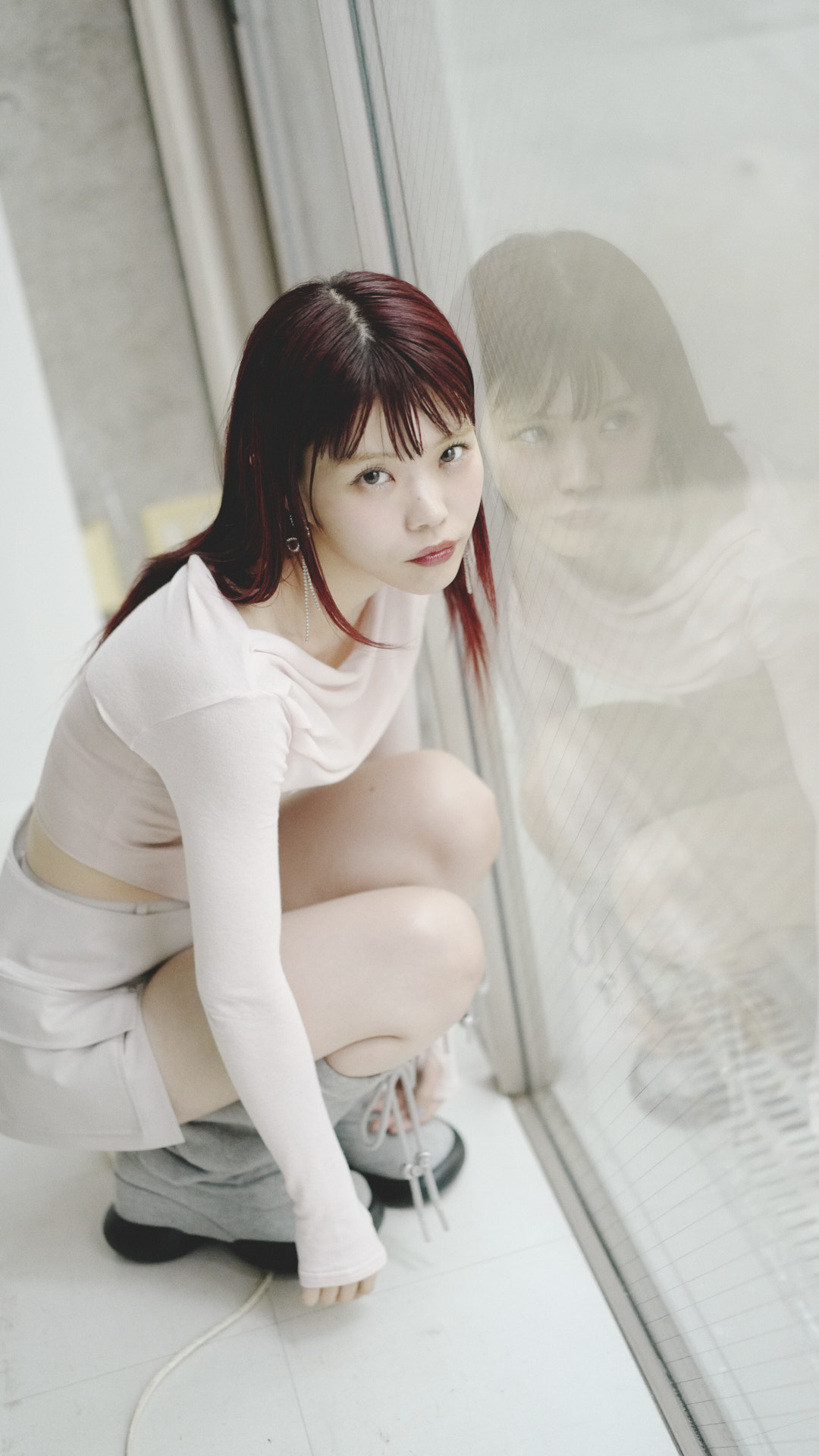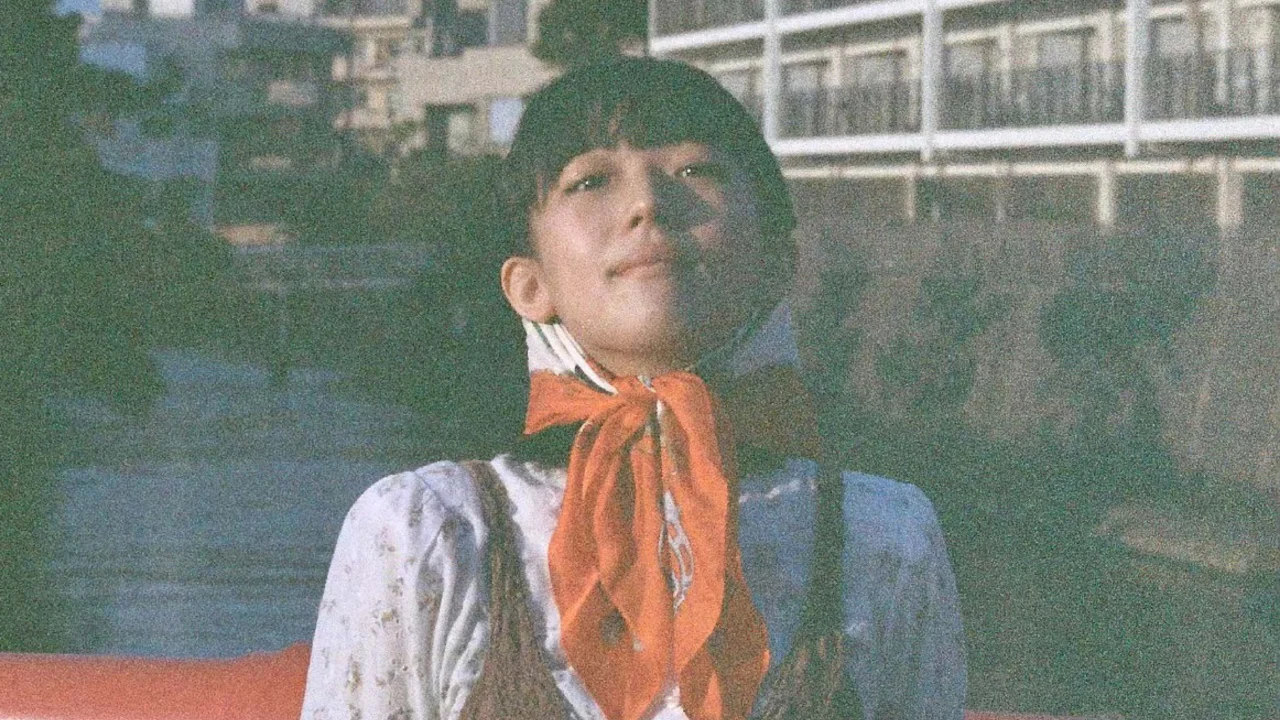On the eve of her solo debut at the Nippon Budokan, September 6, 2024, AiNA THE END sat quietly in a small café in Maruyama-cho, Shibuya. Tears welled in her eyes. She had once stood on the grand stage of Tokyo Dome with BiSH, taking in a view few ever see. So why, now as a solo artist, was she crying?
The answer lies within the pages of her first essay collection “Tassha Janakutemo” (“Even If I’m Not Doing Great”), a book she spent nearly a year writing. It’s an unflinching account of her thirty-year journey, both as an expressive artist and as a deeply feeling individual.
As you read, you begin to see just how intensely she has lived. Every page pulses with the urgency of someone who has poured themselves entirely into becoming AiNA THE END—a performer who doesn’t just sing or dance, but expresses with her whole being.
In this moment of transformation, standing at the threshold between BiSH and something entirely her own, what kind of resolve has she found? How does she carry the legacy of BiSH while carving a new path forward? Through stories of family, mentors, and friends, a fuller portrait of AiNA THE END emerges — honest, vulnerable, and fiercely determined.
INDEX
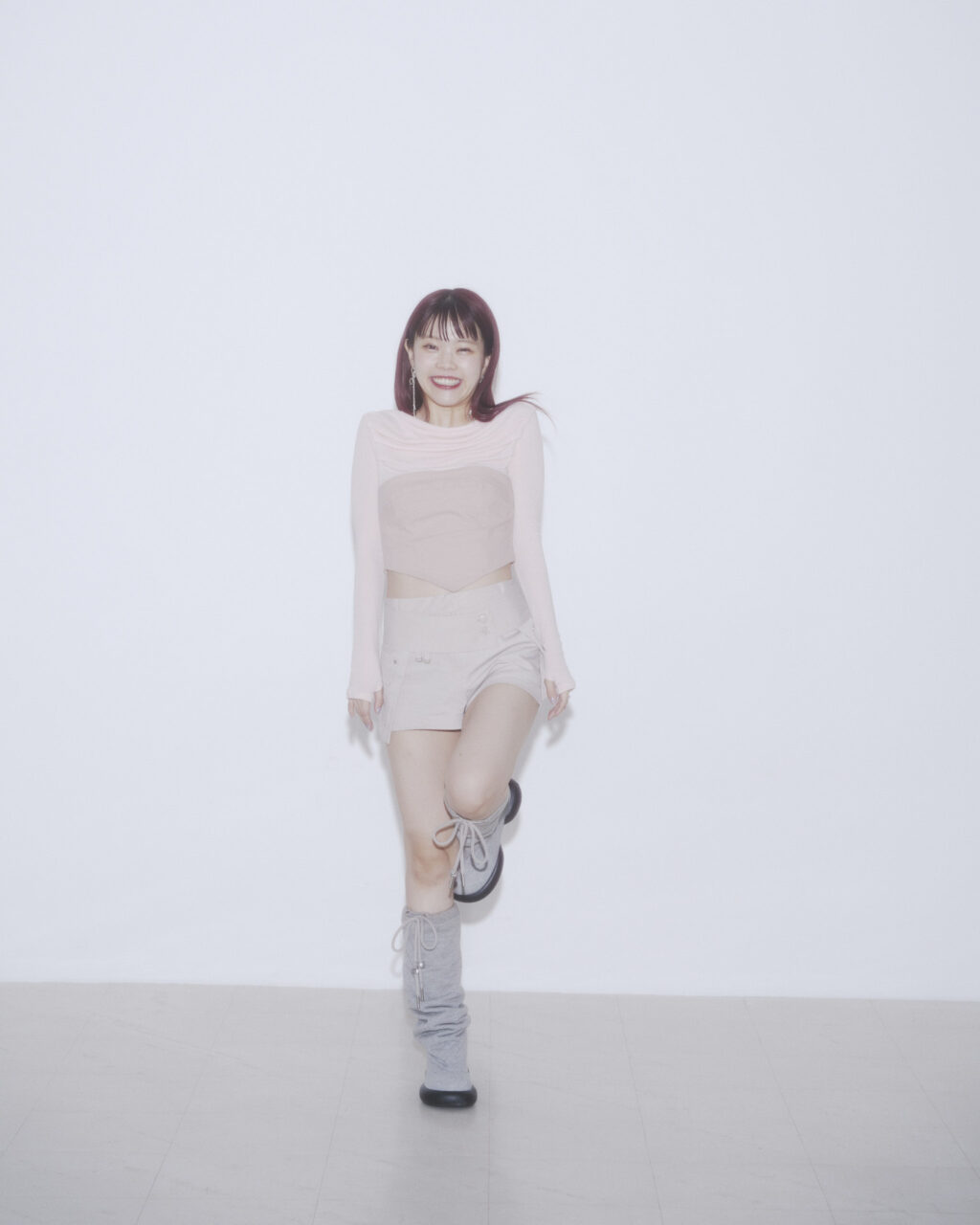
AiNA THE END began her career in 2015 as a member of the “punk band without instruments,” BiSH, and made her major debut the following year. In 2021, she fully launched her solo career with the release of her first album ‘THE END’, for which she wrote and composed every track. In June 2023, BiSH disbanded to much fanfare, and she now continues to pursue her path as a solo artist.
Outfit
Top ¥15,840 / NOT YOUR ROSE (Hana Korea)
Pants ¥12,870, Belt bag ¥8,140 / ASURA (Hana Korea)
Boots ¥86,900 / GRAPE (9Fox LLC)
For inquiries:
Hana Korea: support@hana-korea.com
9Fox LLC: info@9fox.ltd
Tears in a Shibuya Café: AiNA Reflects on Life After BiSH
The image of you crying in a café just days before your solo Budokan concert, shown like an opening scene in your essay, left a strong impression. What emotions were behind those tears?
Aina: Having performed at Tokyo Dome with BiSH, feeling the roar of nearly 50,000 fans through my in-ear monitors, and seeing them dance to choreography I created—there’s nothing else like that moment. At BiSH’s farewell concert, watching that scene again, I realized that no matter how hard I try on my own, I probably can’t surpass it.
When I was in that café, I was filled with a sense of negativity about my future. I thought that even if I stood on the Budokan stage alone, I probably wouldn’t see a view better than that. It felt like no matter how much effort I put in, I couldn’t overcome BiSH.
But deep down, I wanted to surpass BiSH. That’s why I cried. Back then, whether in the café or while writing the essay, I didn’t fully understand it myself, but I’ve come to realize it now.
So you came to see BiSH as something you needed to overcome personally.
AiNA: Exactly. After BiSH disbanded, as AiNA THE END, I wanted to express myself through songs I wrote, to inspire people on stage, to connect with others. But at the same time, I felt like BiSH was a kind of weight holding me back. I struggled with that feeling. Without realizing it, the desire to break free from that weight at Budokan was already taking root.
I recently saw your solo show at Zepp Haneda and honestly, it didn’t feel like a typical live house performance. It was on the level of an arena show. Listening to you now, I see how your determination to surpass BiSH drives you to deliver such a powerful performance.
AiNA: I want to give everything as AiNA THE END. From the dance I’ve practiced since I was four, to the singing I love, to the contemporary dance where I lose myself, to jazz dance—I want to express it all. Now that I’m doing this naturally, the goal isn’t just to surpass BiSH anymore. New, higher ambitions are emerging. I want to become truly one of a kind. That’s the spirit I bring to every live show now.
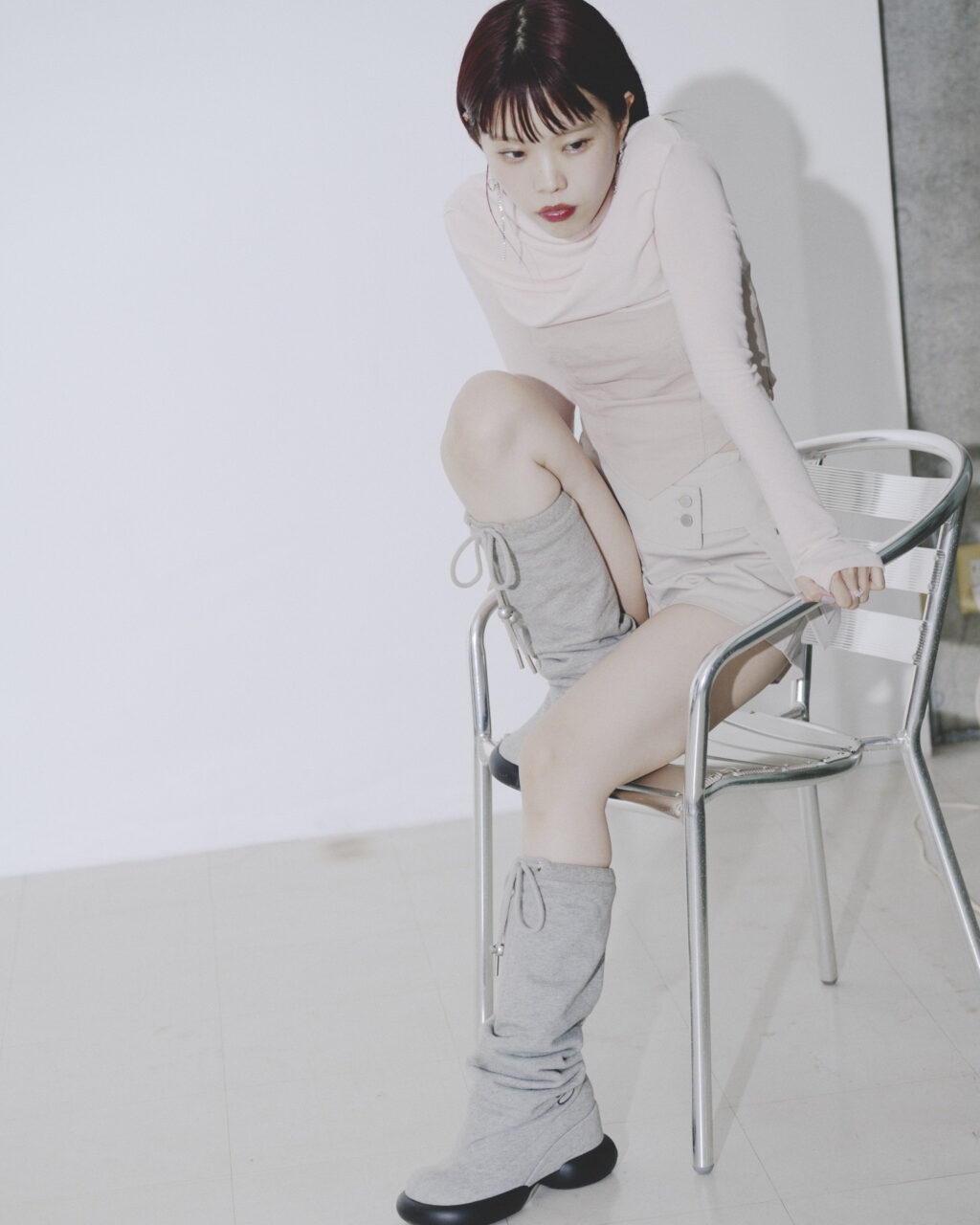
You also performed BiSH’s “Orchestra” at that show. Is that something you feel you could only do now?
AiNA: Definitely. I don’t think I could have sung it back when I was preparing for Budokan. It really came after that experience.
Like I mentioned in my book, before Budokan, my mental state was all over the place—I even collapsed during some live performances. After BiSH disbanded, I was on my own, and my mindset as a solo artist wasn’t settled yet. But after Budokan, everything finally fell into place.
It sounds like you gained the true courage to stand alone in the spotlight.
AiNA: Exactly. Before Budokan, I didn’t have that resolve. During the first couple of songs at Budokan, my legs were shaky. Honestly, I was singing without feeling fully grounded.
But as the show went on, I gradually felt more solid on my feet. By the end, I realized, “I’m an artist who can truly stand on the Budokan stage!” That moment marked the beginning of my real commitment as a solo artist.
Back when you were in BiSH, you likely carried the responsibility of overseeing the group, including choreography, and I imagine you gave your all as both a performer and an idol to meet those expectations. Do you think that overwhelming sense of achievement at Budokan was essential for you to find the determination to move forward as a solo artist?
AiNA: Yes, absolutely. Being part of BiSH and going solo are worlds apart. When BiSH played festivals, we were unbeatable. No matter which festival we appeared at, it felt like we always came out on top, and the crowd’s energy was incredible. That was thanks in large part to our amazing fans.
But going solo has been a totally different experience. Sometimes it feels like I’m forcing my own vision onto the audience. When I can’t fully engage them, it hits me hard — I realize I can’t dominate the way I did with BiSH. So, in many ways, I’m starting fresh as a new artist. Since the disbandment, it truly feels like I’m building my solo career from the ground up.
INDEX
The Routine That Keeps AiNA Going at 30
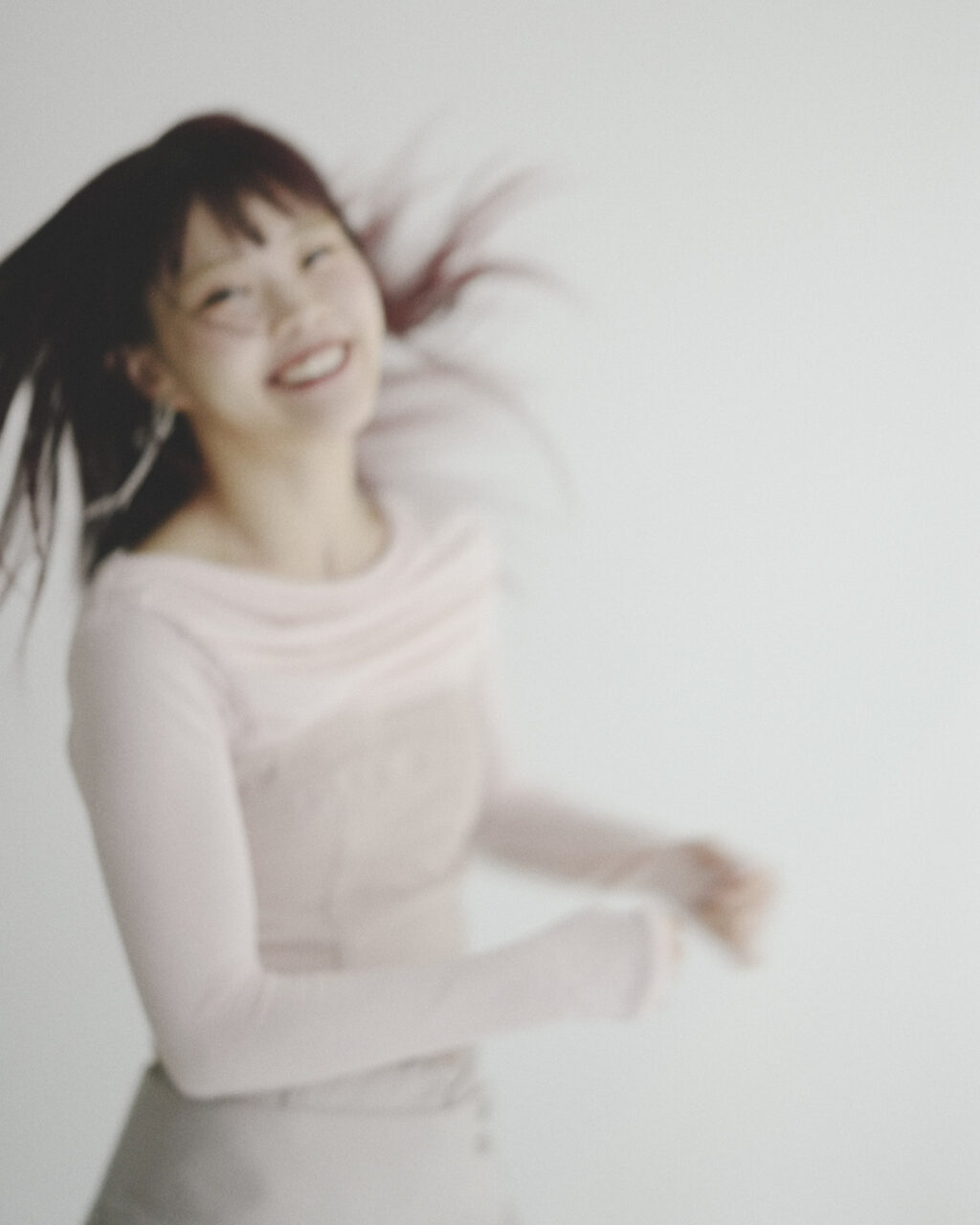
But I think what you’re expressing now is a performance that creates a resonance by confronting your own focus with the audience’s concentration. Whether you’re dancing or in moments of silence without singing or sound, those pauses are powerful expressions. So, it seems to me that what you do can’t be measured simply by the volume of the audience’s cheers.
AiNA: Really? Hearing that is a relief. When I perform at various festivals, the production team and everyone around me really want AiNA THE END to “win” at those festivals.
So, it’s easy to start thinking that visible “victory” means how much the audience is engaged. Being in that mindset for so long, I worry I might get influenced by it. That’s why now I want to be an artist who can create moments where the audience truly focuses and connects deeply with the live performance.
As I read through your essay, I felt that the tears you shed in the café were perhaps an expression of anxiety about the future, coming from living so moment to moment until now.
AiNA: That’s probably true. I may have been living very moment to moment. Just the other day, while I was taking a bath, I thought, “You know, I think I’ve had enough of life.” But it’s not because I’m depressed. I’ve spent a lot of time with friends, made plenty of mistakes, been loved by many people — I really am happy.
I was thinking, “I don’t really have any regrets if I were to die now,” while I was taking a shower. But then I thought, “Wait a minute!” Like, “I worked really hard on a new song that’s coming out this summer!” and “I also have my essay collection ‘Even If You’re Not Well’ coming out soon!” So I thought, “No way I can just die now!” [laughs].
That’s when I decided to push myself a little more. Then, when the new song comes out in the summer, the summer festivals will be fun, and I’ll probably forget about what I was feeling just two days ago. I’ll live happily through the summer, but then probably, boom! The darkness will come again. But even then, I’ll forget it again. It’s always like that—I’m saved by my releases.
Turning 30, I figured out my routine: “Ah, maybe a tough time is coming, so I should make a new song.” I make a song and share it with friends. Without having music planned, I’d probably just stay home sleeping all the time.
It’s good that you have music.
AiNA: Definitely, that’s exactly right.
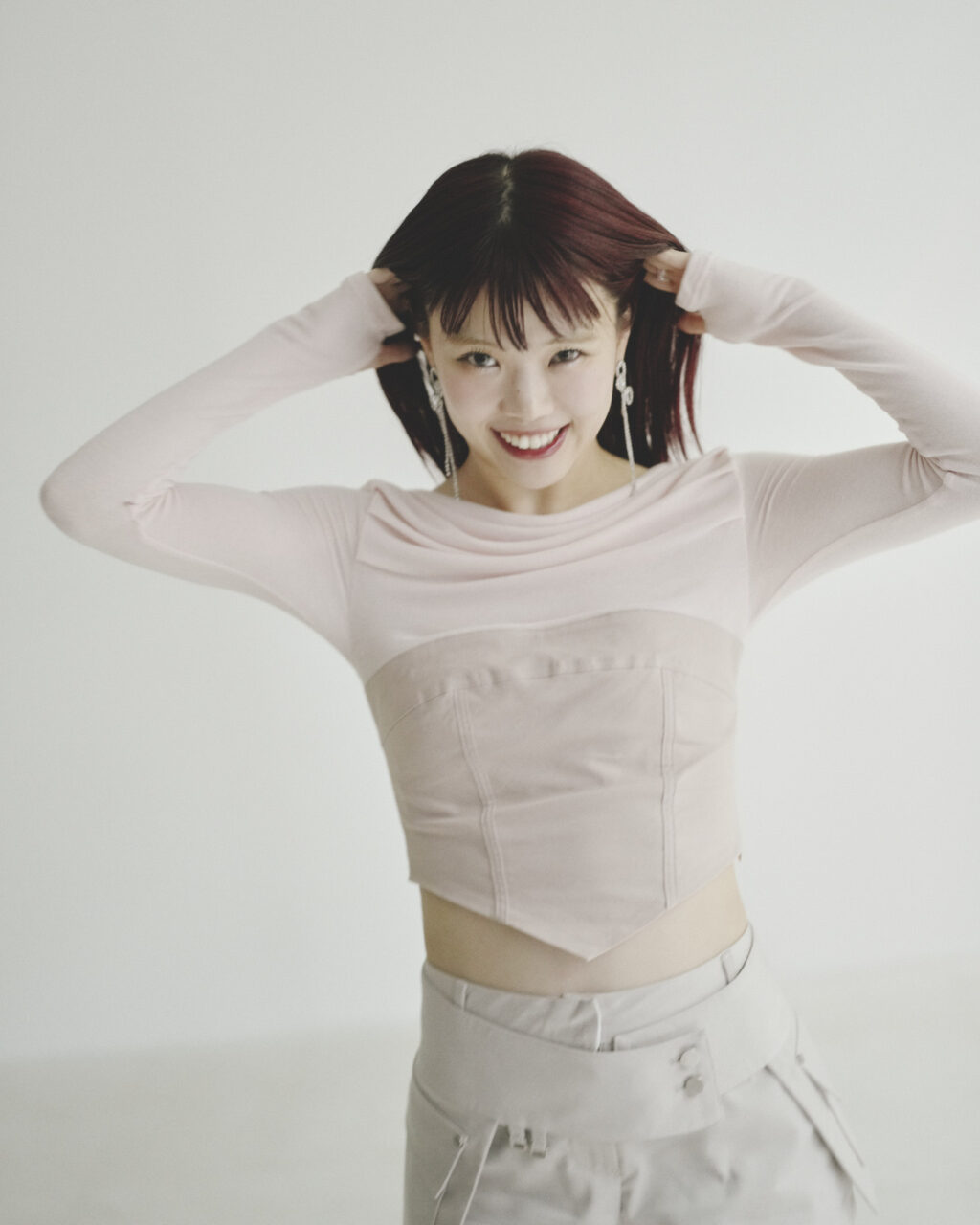
INDEX
A Childhood Marked by Struggles in Communication
Looking back, how did you find the process of writing your essay?
AiNA: I was invited to write it around last spring or summer, and I took about a year to gradually work on it. At first, I honestly didn’t feel confident about writing just with words. There was an option to do interviews and have someone else turn them into text, but since I said I wanted to write it myself, I felt I had no choice but to keep going.
While working with the editor to organize my writing, I received a lot of encouraging feedback that helped me let go of my doubts. Leaning on that support, we completed the book together like a team.
Many celebrity books or essays are created by interviews and writers structuring the content, but you didn’t want to take that route.
AiNA: That’s right. I was well aware that I’m not very skilled at writing and lacked confidence, but my love for books was stronger. Because I love books, I really wanted to write it myself.
Your writing feels very genuine and sincere. It seems like if you tried to put on a front, your words wouldn’t flow.
AiNA: Thank you, that means a lot to me.
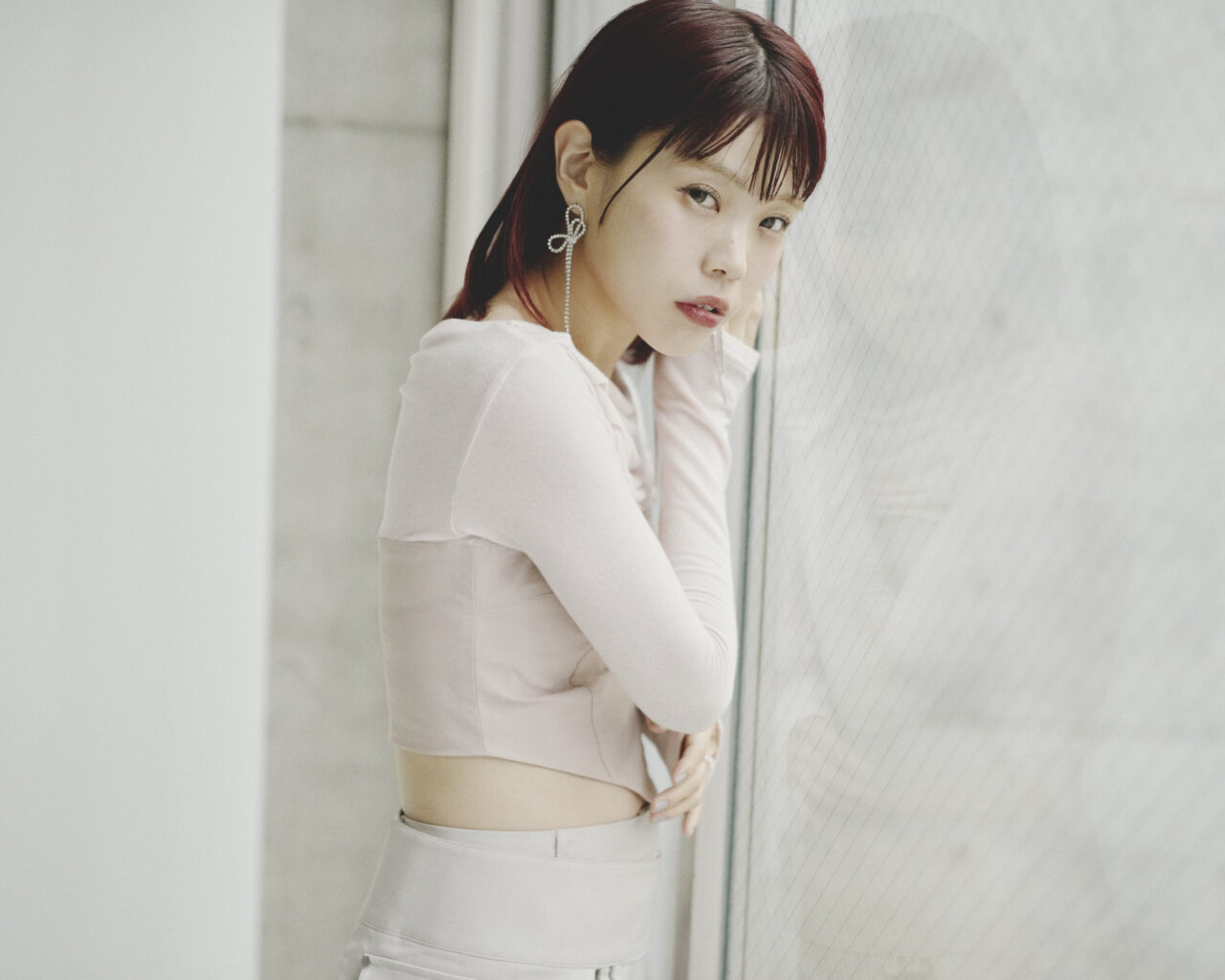
What surprised me was hearing that your mother even considered taking you to a doctor because you had such difficulty communicating with others. Talking to you now, it’s hard to imagine that was once true.
AiNA: I often wonder how much I’ve changed myself.
Your book really conveys how much you transformed through your relationships with others.
AiNA: Absolutely. My contemporary dance teacher, Natsuko Ozawa, and other teachers played a huge role. They used to scold me every day. For example, I was the kind of kid who would suddenly slam off the lights without thinking, even while others were still in the room. It was pretty odd. I just did whatever I wanted.
Sometimes I’d suddenly yell out loud, or even if I was chatting with friends, I’d abruptly start talking about myself whenever I felt like it. That’s obviously not acceptable behavior. So my dance teacher kept telling me things like, “Be more grateful to others,” “Show love,” and “Help people in need.” I learned not only dance but how to be a decent person. Slowly, I began to understand that.
At its core, it sounds like pure curiosity and impulsiveness. In a way, that’s probably why you can still write songs and perform contemporary dance today.
AiNA: I really feel that. Contemporary dance can be super embarrassing if you think about it logically. You try to express yourself by moving your face in tiny waves, like sand shifting, practicing that in front of a mirror. When you step back and think about it, dancing like you’re made of sand on your face is pretty surreal.
But when you’re inside the moment, it can even bring you to tears. And the instant you snap back to reality, you start laughing. So I tell myself, “I must have the talent to get completely lost in this, so I’ll embrace it,” and that’s how I approach contemporary dance. Maybe it’s because I was that way as a child.
It seems your teachers aimed to nurture that unique talent while helping you grow in a way that wouldn’t hold you back or unintentionally hurt others in society.
AiNA: Exactly. I’m really thankful to my teachers for that.




